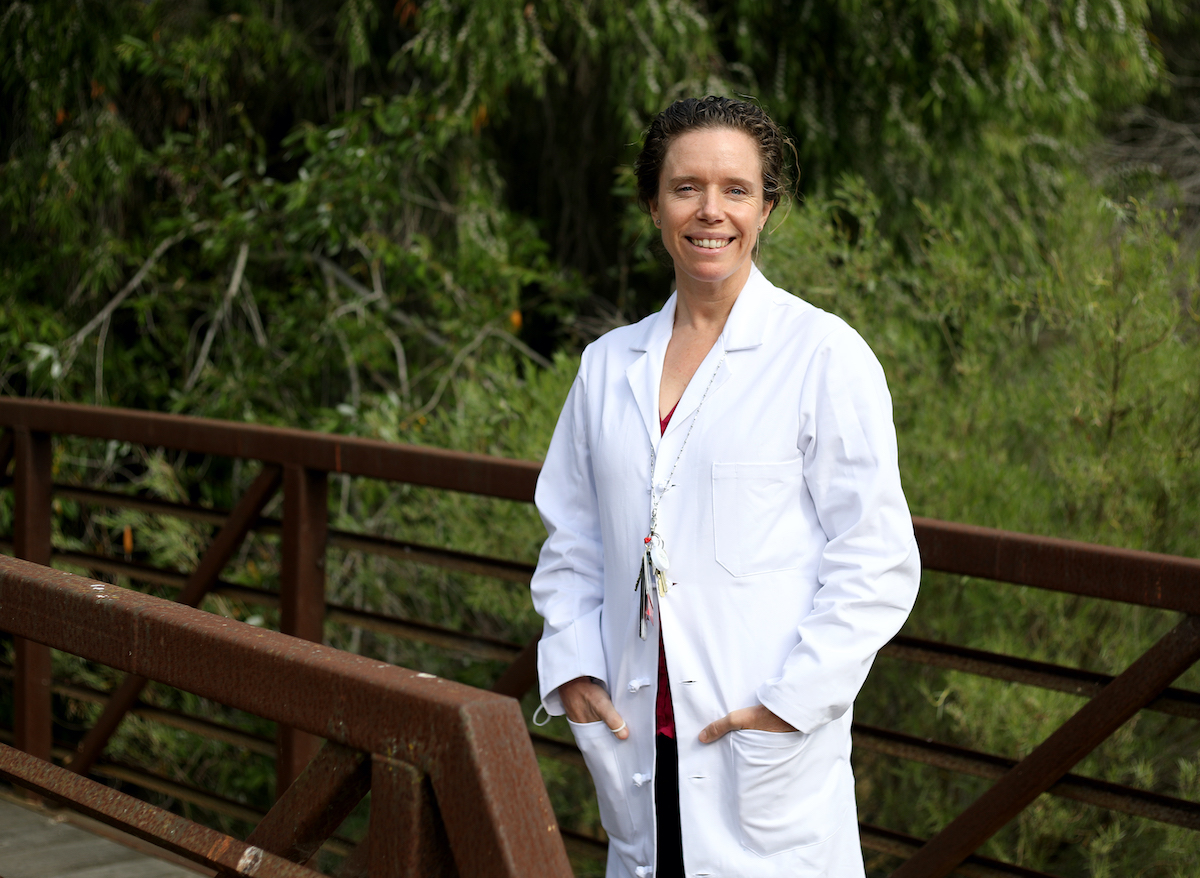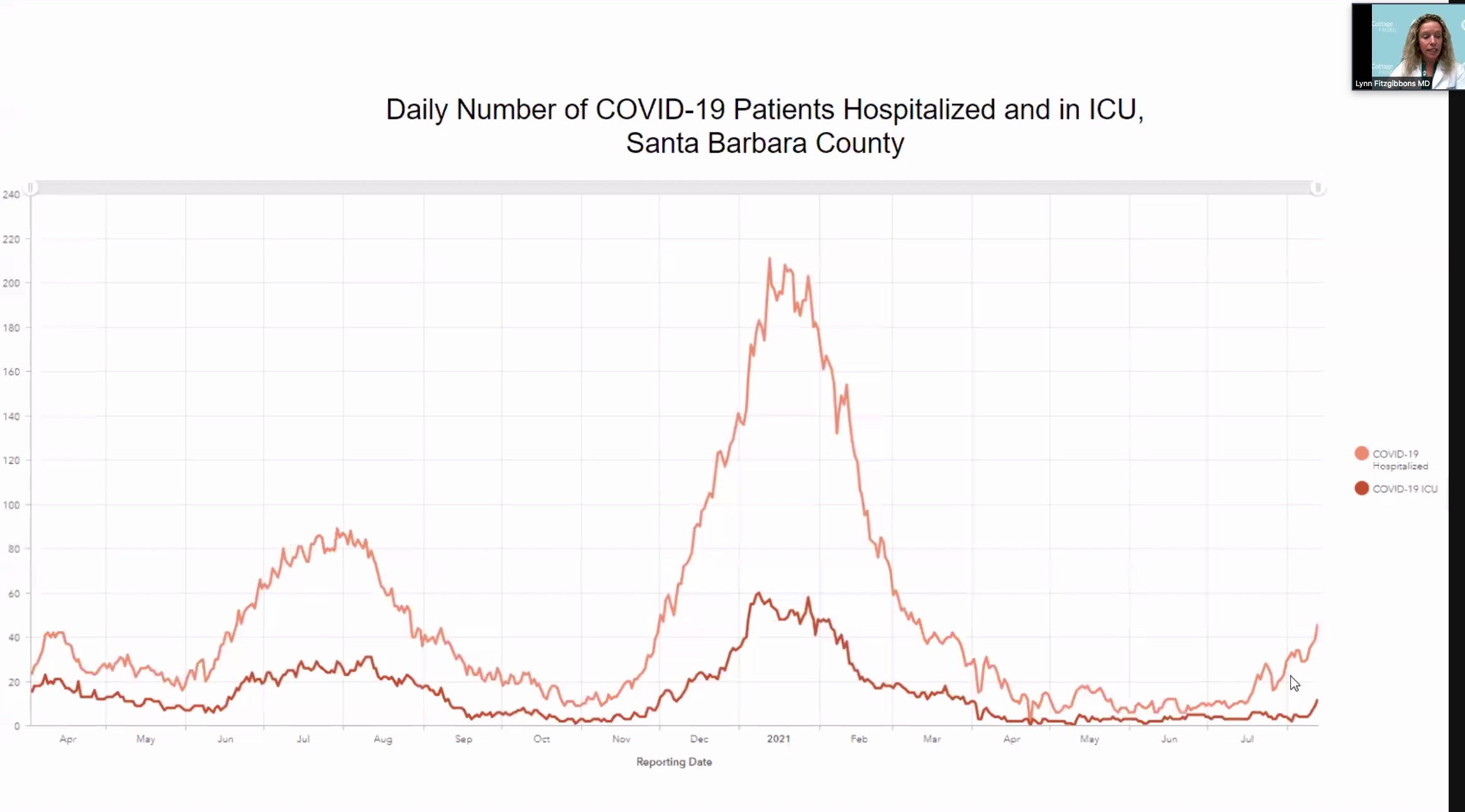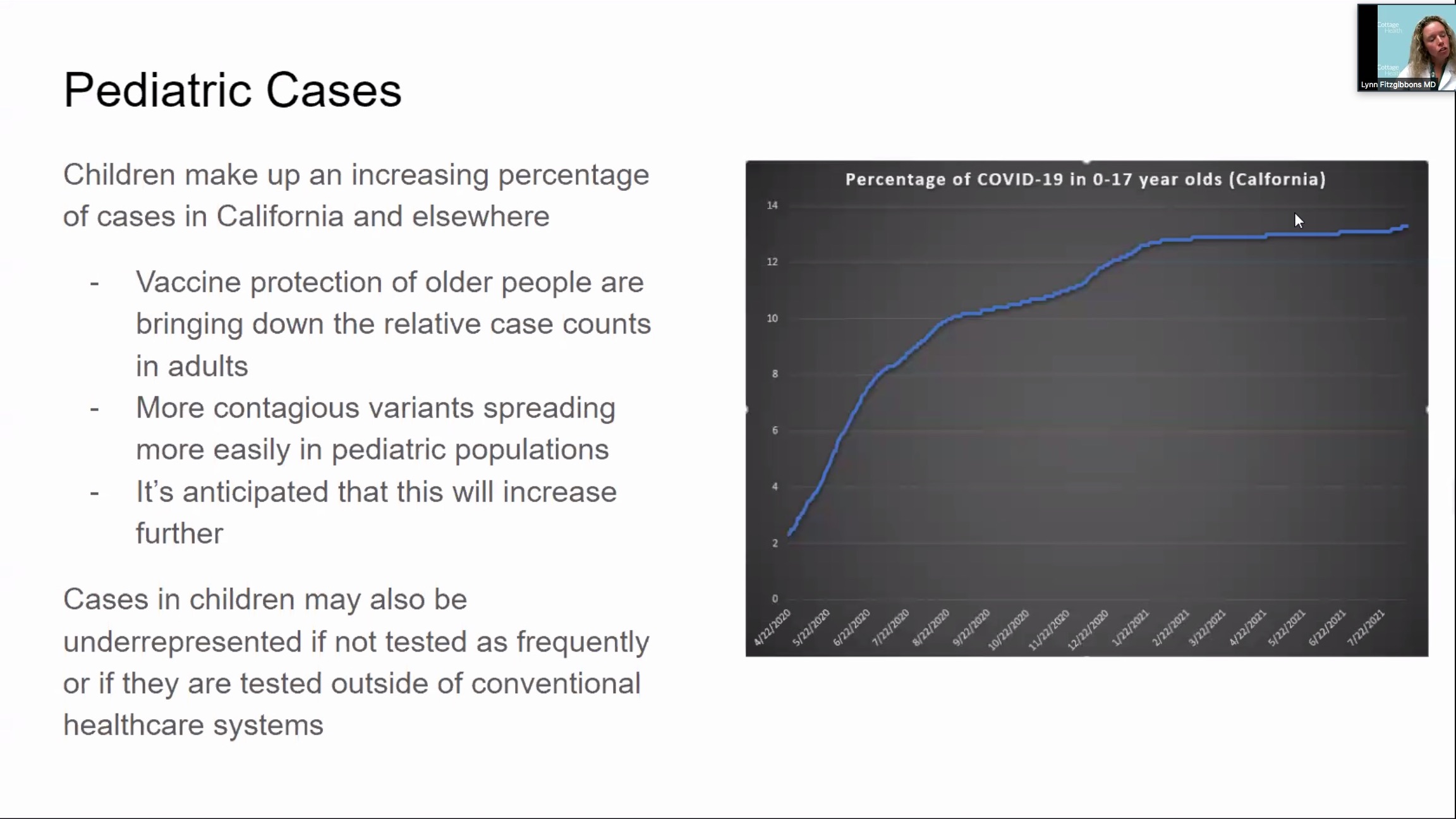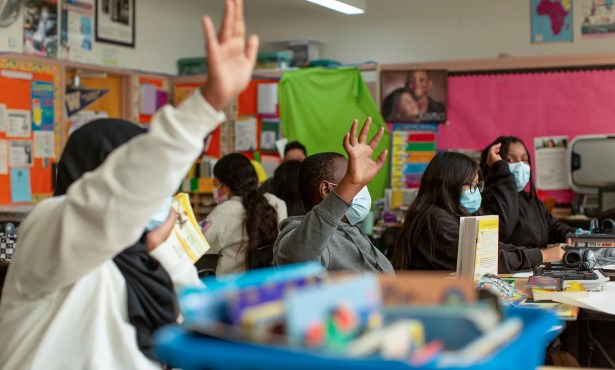Update on COVID from Dr. Lynn Fitzgibbons
Shedding Light on Complicated Facts

Dr. Lynn Fitzgibbons has become Santa Barbara’s go-to doctor when it comes to COVID-19, not only giving presentations to practitioners at Cottage Health — where she is the infectious disease specialist and medical education director for research and quality — but also to the public in online forums in which she explains the latest in a complicated subject. Dr. Fitzgibbons went the extra mile again on Thursday evening in an illuminating conversation that reviewed COVID and pregnancy, kids and schools, and finding empathy when confronted with exhaustion and frustration.
Underlying the need to spread good information is the Delta variant. Santa Barbara’s current increase in cases — 184 on the day Dr. Fitzgibbons spoke, 151 today — can be tracked to Delta’s incredible ability to spread and infect. An increase in cases among children is beginning to show up and is expected to rise. The variant has been able to break through vaccine protections. In both those groups, fortunately, symptoms tend to be mild and not require hospitalization in most, but not all, cases.
Overall, the hospitals in the county were anticipating more cases. “With the big jump yesterday and today, a huge new number of cases, it takes a week to feel that in the hospital. We know that’s coming.” Dr. Fitzgibbons added that about 90-95 percent of hospitalized patients were not vaccinated.

Cottage was watching pediatric COVID cases very carefully, Dr. Fitzgibbons said. They were seeing children’s hospitals across the country become overwhelmed with a relatively large number of cases. At Cottage, they had the ability to flex: “We started with one COVID unit, and by January we had five full units of COVID patients.” Should the same happen with pediatric cases, which they hoped didn’t occur, Cottage could expand safely.
Children:
• Symptoms are often mild, like allergies or a runny nose, but run the gamut of adult disease symptoms: fever, cough, shortness of breath, headache, sore throat, abdominal pain, diarrhea, fatigue, or the loss of smell or taste.
• Infectious for about 10 days
• Recovery usually in a week or two, rarely more than eight weeks.
• If hospitalized, tend to have chronic conditions like obesity, diabetes, asthma.
• Can suffer “long-haul” COVID.
• More serious, but rare, multisystem inflammatory syndrome can occur 2-6 weeks after COVID infection. Happens at any age, typically among 6-12 year olds.
Sign up for Indy Today to receive fresh news from Independent.com, in your inbox, every morning.
Pregnant Women: “If I were asked today if a woman who was pregnant should get the vaccine, I would say yes, yes, yes, yes, yes, get vaccinated.”
• Newly encouraged to get a vaccine by the Centers for Disease Control and Prevention
• If infected, more likely to suffer a severe case, including intensive care.
• Vaccine safety very good
• As with many illnesses and vaccines, an inflammatory reaction can affect a woman’s menstrual cycle by a few days.
• No correlation with fertility problems.
Schools and Children: Keeping kids in school and avoiding quarantine had to be weighed against the fact that not seeing smiles and facial expressions was hard on kids’ emotional growth. Dr. Fitzgibbons observed:
• Best resource, California Safe Schools for All website
• Masks curbed the spread of aerosolized virus. Distance was more for larger droplets and less important with COVID.
• “If you’re sharing the same air, wear a mask.”
• Vaccine would likely be for older kids first. Timeframe, sometime during the school year.
Vaccines:
• FDA recommended third dose for organ transplant recipients and immunocompromised patients.
• Vaccines are effective in preventing serious disease and death.
• Mayo Clinic study showed Moderna at 76 percent effective against Delta, Pfizer 42 percent. (Conclusion: Wear a mask.)

COVID Exhaustion: One of Dr. Fitzgibbons’s closing comments was to give her perceptions as a parent. “Everyone is truly exhausted from the last year and a half,” she said. What they’d hoped would be a fresh start to a school year with less disease has become just the opposite, which is more than some people can bear to face. Emotions are high, and people are frazzled and tired, she said.
Conversations were sometimes tense, but “an empathetic approach rarely takes you in the wrong direction,” she advised. Some haven’t been vaccinated out of apathy, or they’re too busy. Some didn’t understand the benefit, and others were scared of something they couldn’t fully trust. That conversation needed to start with an understanding of where people were coming from, she said, especially given the sophisticated ways misinformation is being distributed. “If I had a child 12 or older, with the Delta surge about to hit the community, I would learn all I could about the COVID vaccine.”
Dr. Fitzgibbons’s talk was taped and will be distributed by Cottage by Monday in both English and Spanish. The Independent will make it available once the translation is completed.
At the Santa Barbara Independent, our staff continues to cover every aspect of the COVID-19 pandemic. Support the important work we do by making a



You must be logged in to post a comment.